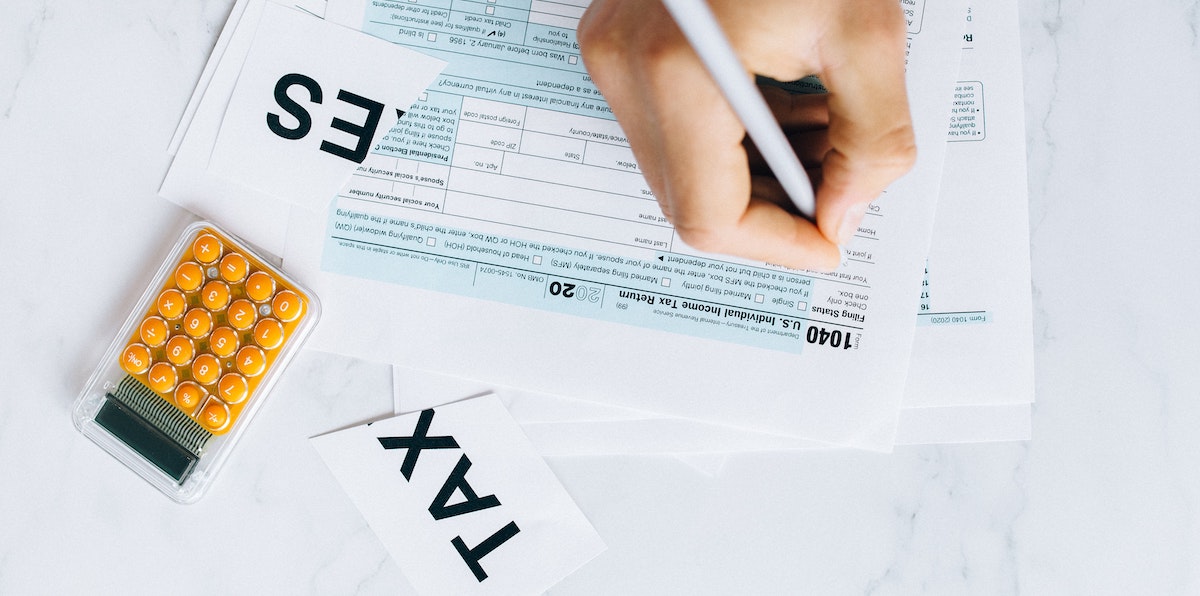Property Management
8 Ways Self-Managing Rental Owners Can Maximize and Protect Their Cash Flow
Last Updated Jul 24, 2023


When your home becomes a rental, do you treat it like a business or an investment? The answer is a little of both. Turning your home into a long-term rental will change your financial situation overnight. Especially when you take on the role of DIY property manager, managing your rental home will become a side hustle.
If you’re looking at setting up your accounting and bookkeeping for the first time, check out this simple guide. For pointers on how to maximize your rental income, guarantee your cash flow, and get more deductions during tax season — keeping reading for the answers.
This article will highlight eight tips on how to manage your rental income and expenses as a self-managed rental owner.
Key Takeaways:
- Keeping rental income and expenses separate from personal finances will make it easier to manage your cash flow and tax records.
- Tracking the time you spend on property management tasks can improve your tax deductions and allow you to deduct losses against other income.
- Setting long-term goals will make financial planning easier, helping you to achieve bigger objectives such as retirement planning or paying off a mortgage sooner.
Disclaimer: This article provides general information for rental homeowners and should not replace personalized financial planning. Please consult an accountant or tax professional for advice tailored to your personal financial situation.
8 financial tips for DIY rental property managers
1. Establish separate bank accounts for your rental home
When you put your home on the rental market, it’s time to split it off from your personal finances. That means a fresh bank account for all income and expenses. This will provide clarity on your cash flow, simplify your record keeping (especially during tax season) and make reconciliation much easier.
If you buy another investment property or inherit a house that you rent out, be sure to repeat this process and open a new account for each home to avoid confusion in your accounting.
2. Be flexible with rent payment options
Chasing down rent is one of the hardest tasks when managing your own rental home. If your residents are late with payments, your cash flow will fall out of sync. Without stable income, you could fall short on your own financial obligations, putting you further behind every month.
It's important to be flexible and work out the best payment options and schedules for your residents, making it as easy as possible to meet their obligations. If they get paid monthly, a monthly rent schedule should be easy to stick to. But if they get paid weekly or fortnightly, this may put them behind in those tricky 5-week months.
Don't rely on cash and cheques, investing in a secure payment platform that is designed for rent payments to reduce fraud.
Pro Tip: If rent collection is becoming an issue, try Belong PRO. We'll find you people that will love and care for your home and guarantee that rent is paid like clockwork, no matter when we receive it.
3. Run an accurate cash flow analysis
Calculating cash flow on a rental property isn’t quite as simple as the amount you earn in rental income. Nor is it as straightforward as rental income, less your mortgage repayments. To do an accurate rental property cash flow analysis, you’ll need to account for:
- Rental income
- Extra income for any services or storage provided
- The impact of vacancies on your total income
- Operating expenses such as maintenance costs, property taxes, insurance, HOA fees and paying professionals such as contractors and accountants
- Any debt or financial liabilities such as mortgage repayments and loans
This cash flow analysis should be kept on a spreadsheet and updated in line with actual expenses, helping you to budget and track your cash flow.
Read More: How To Do An Accurate Rental Property Cash Flow Analysis
4. Set a budget that includes emergency funds
Do you have a rainy day fund for the unexpected? What about improvements to the home such as replacing an aging hot water heater or upgrading the backyard to attract a higher rental rate? Having extra money in your budget could help you achieve your financial goals sooner and will make sure that unexpected costs don’t derail your personal household budget.
Pro Tip: If the cost of living is making it too hard to save extra cash, Belong can help there too. We give homeowners the option to spread their rental home costs like maintenance and insurance premiums over the term of their lease. Learn more here.
5. Set long-term financial goals for your rental home
A cash flow analysis and budget are great for staying on top of your income and expenses. But what about achieving long term goals? Do you need positive cash flow or are you using negative gearing to reduce a tax liability?
If you want to maximize your rental income, start by setting goals for what you’re looking to achieve. Having a clear view of the outcome will make it easier to create a financial plan that helps you achieve them. Even if you are an ‘accidental landlord’ and didn’t set out to become a real estate investor, the right goals could help you pay off your home sooner or work toward your retirement.
Let’s say for example your goal is to increase your monthly cash flow. Raising the rent could be a simple solution, but a higher price could also increase your vacancy rate and turnover.
You could visit your budget and cut costs, or you could research your area to see what amenities yield a higher rent. Making cost-effective improvements may cost money now, but help you to achieve longer term goals.
Revisit financial goals whenever you are setting a new budget or making big decisions about your home to ensure they align with your long-term vision.
6. Don’t leave tax preparation to the last minute
Even if you decide to hire an accountant, you’ll still need to get a handle on the kind of information you need to supply to them and the IRS under Schedule E (Form 1040). Don’t wait until March every year to start looking for your paperwork.
It’s also worth putting away a percentage of your rental income every month to pay tax. Like your income, this should be kept in a separate account so you’re not tempted to spend it.
Income (minus your deducted expenses) from a rental property is taxed as ordinary income, so how much you earn from other income such as your salary will impact the tax bracket your rental income falls into. You can see the latest tax brackets for rental income here.
7. Keep a log of the work you do on your rental home
On the subject of tax, it’s important to log all work activity you complete on your rental home, no matter how big or small. The IRS treats investments as passive activity, which affects your tax claims. Most homeowners managing their own rental home or even just making major decisions will qualify for “active participation”. This would qualify you to deduct up to $25,000 of passive losses. You can also be eligible for active participation if you hire a company like Belong to handle all the day-to-day work.
If your rental home workload is quite high (~10 hours a week or over 500 hours a year), you might be classified as a real estate professional. This means you can offset any losses against other types of income and you won't be subject to the 3.8% tax that applies to net investment income.
There are regulations, income thresholds and caps on participation and deductions so you will need to speak to an accountant to determine how you qualify. If you can’t show what work you’ve done on your rental home, this is going to be considerably harder so it’s best to keep records throughout the year.
Read More: The Ultimate Tax Prep Guide for Landlords
8. Review your home insurance coverage
Budgets, financial plans, even guaranteed rent won’t protect you from financial ruin if your home is uninsured. Rental home insurance can protect your financial security by shielding you in the event of a disaster, if your home becomes uninhabitable, or a resident sues you. But if you’re still relying on a standard homeowners insurance policy, your coverage stopped the moment you put your home on the rental market.
Make sure you review your policy to ensure you’re not paying for a defunct policy. If you join Belong, we can help you with the right coverage and easy monthly repayments.
Read More: What Type of Insurance Should I Get For My Rental Property?
Protect your rental home finances with Belong
It’s been the mission of Belong to change the way renting works on both sides. Belong focuses on creating authentic belonging experiences — empowering residents to become homeowners and homeowners to become financially free. We’re looking after homes on your terms, by building new alternatives to property management that put people first and are enabled by best-in-class technology and services.
If you want to experience rental ownership without the hard work, Belong PRO is a full service, end-to-end home management solution for rental properties. Check our one of our many local pages to learn more:
San Francisco Property Management
Los Angeles Property Management
Jacksonville Property Management
Charleston Property Management
Greensboro Property Management
Salt Lake City Property Management
About The Author
Melanie Kershaw
Mel Kershaw is a Content Lead at Belong. With an extensive background working with technology companies including Eventbrite and Yelp, she’s always looking for ways to create educational and informative articles that simplifies tech and solves problems for her audience.




